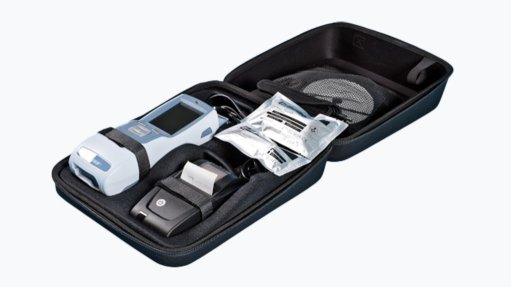Survey shows renewable energy product affordability is a challenge for SMEs
Consumers and businesses believe there are many competitors in the renewable energy products market, but affordability may be a potential barrier to accessing renewable-energy solutions, which may inhibit the widespread adoption of these products, a survey conducted by the Competition Commission shows.
The survey of renewable-energy products in South Africa, bought by consumers and businesses between 2021 and 2023, shows that, despite renewable energy product prices decreasing globally, 60% of consumers consider prices to be expensive and unaffordable, and 45% of businesses indicated that the cost of renewable-energy products is high.
The data from the survey indicates that solar PV panels are the least accessible renewable-energy product, with most households indicating that solar PV panels cost up to R20 000 on average, and 13% of businesses indicating that solar PV panels that they use cost up to R500 000.
This raised a potential affordability barrier for small and medium-sized enterprises (SMEs), noted Competition Commission Advocacy Division senior analyst Sithabiso Buthelezi.
Further, the procurement of renewable-energy products increased from 2021 to 2023, with inverters and storage batteries being the most sought-after products. Most consumers purchased the products after 2021, which could be attributed to the intensity of loadshedding and the potential ease of sourcing the products, he said.
Between 2022 and 2023, 72% of consumers surveyed bought inverters, while 64% of consumers surveyed purchased solar PV panels, and 64% bought storage batteries, the survey showed.
Use of renewable-energy products was correlated with income levels, he added during a presentation at the dtic campus on August 28.
Additionally, the survey found that 80% of households and 70% of businesses were self-funding the procurement of renewable-energy products, highlighted Buthelezi.
Although there are credit options from financial institutions for the purchase and installation of the renewable-energy products, none of the business participants used these credit options and less than 9% of the households indicated that they used external financial support from financial institutions.
Funding institutions and government could promote funding options and tax incentives to enable access, he recommended.
DRIVERS AND OPPORTUNITIES
If South Africa does not lower the carbon intensity of its economy, it will face significant problems and will lose its investment attractiveness because the country's trade partners want to buy products with a low carbon footprint, said Department of Trade, Industry and Competition (dtic) Green Industries chief director Gerhard Fourie.
The renewable-energy sector presented an opportunity to grow South Africa's economy. There had been significant electricity price shocks in the economy, and there were many renewable-energy products in the market, he noted.
However, the critical success factor for local manufacturing is economies of scale, and South Africa has a small domestic market that is far from trading partners, which makes it difficult to achieve economies of scale for localisation and industrialisation.
"The biggest obstacle to growing the renewable energy products manufacturing industry in South Africa is stable demand."
The country also has a number of other inefficiencies that can hamper its desire to manufacture renewable-energy products locally, including that its SME sector is considerably smaller than those of other countries.
However, if the country could make it easy for SMEs to do business, then there was a significant opportunity to grow the economy, he said.
"To achieve the globally agreed goal of achieving net-zero by 2050, the world will need to offset the equivalent amount of energy it is generating from fossil-fuel sources through renewables and nuclear. This is exajoules of power that need to be developed and is a big opportunity globally.
"Of interest to us in this space is that lots of the raw materials needed to manufacture renewable-energy products for different markets - which are also still developing - are available in South Africa and in Southern Africa," highlighted Fourie.
One area that South Africa and the region could focus was on mining, processing and refining the materials needed for renewable-energy products, he emphasised.
However, South Africa's large export products, including steel, basic metals and minerals, all have significant amounts of carbon content because of the carbon intensity of the country's energy.
The bulk of CO2 in South Africa's economy is from its energy sector and there was therefore a big opportunity for renewable energy in the domestic market, he noted.
"We will have to get rid of our carbon-intensive energy sources. The problem is the carbon-intensity of the economy, particularly metals, minerals and mining. Part of the solution is to develop industries that have high value-add and low carbon inputs," he proposed.
The price of renewable energy is significantly lower than the price of coal-fired electricity in South Africa, and it is a cheap solution for the country.
"Renewable-energy generation has grown over the years, and the share of renewables of total electricity capacity is close to 6% currently. We have a long way to go, but there is steady growth," he said.
To ensure it mitigates its carbon-intensity vulnerability, South Africa should pursue energy efficiency, energy sufficiency, electrification, renewable-energy generation and green molecules.
All of these requirements also increase the demand for renewable-energy products, which is significant and growing.
A key challenge is that South Africa imports billions of rands of renewable-energy products, but is a very small part of global demand, which is dominated by Chinese companies that have significant economies of scale.
"There are lots of ups and downs in the industry. For example. independent power producer procurement bid windows see brief periods of high demand, and then very low demand. If we want to tap into the opportunities of industrialisation, we have to facilitate stable demand in the industry," Fourie said.
Article Enquiry
Email Article
Save Article
Feedback
To advertise email advertising@creamermedia.co.za or click here
Press Office
Announcements
What's On
Subscribe to improve your user experience...
Option 1 (equivalent of R125 a month):
Receive a weekly copy of Creamer Media's Engineering News & Mining Weekly magazine
(print copy for those in South Africa and e-magazine for those outside of South Africa)
Receive daily email newsletters
Access to full search results
Access archive of magazine back copies
Access to Projects in Progress
Access to ONE Research Report of your choice in PDF format
Option 2 (equivalent of R375 a month):
All benefits from Option 1
PLUS
Access to Creamer Media's Research Channel Africa for ALL Research Reports, in PDF format, on various industrial and mining sectors
including Electricity; Water; Energy Transition; Hydrogen; Roads, Rail and Ports; Coal; Gold; Platinum; Battery Metals; etc.
Already a subscriber?
Forgotten your password?
Receive weekly copy of Creamer Media's Engineering News & Mining Weekly magazine (print copy for those in South Africa and e-magazine for those outside of South Africa)
➕
Recieve daily email newsletters
➕
Access to full search results
➕
Access archive of magazine back copies
➕
Access to Projects in Progress
➕
Access to ONE Research Report of your choice in PDF format
RESEARCH CHANNEL AFRICA
R4500 (equivalent of R375 a month)
SUBSCRIBEAll benefits from Option 1
➕
Access to Creamer Media's Research Channel Africa for ALL Research Reports on various industrial and mining sectors, in PDF format, including on:
Electricity
➕
Water
➕
Energy Transition
➕
Hydrogen
➕
Roads, Rail and Ports
➕
Coal
➕
Gold
➕
Platinum
➕
Battery Metals
➕
etc.
Receive all benefits from Option 1 or Option 2 delivered to numerous people at your company
➕
Multiple User names and Passwords for simultaneous log-ins
➕
Intranet integration access to all in your organisation

















